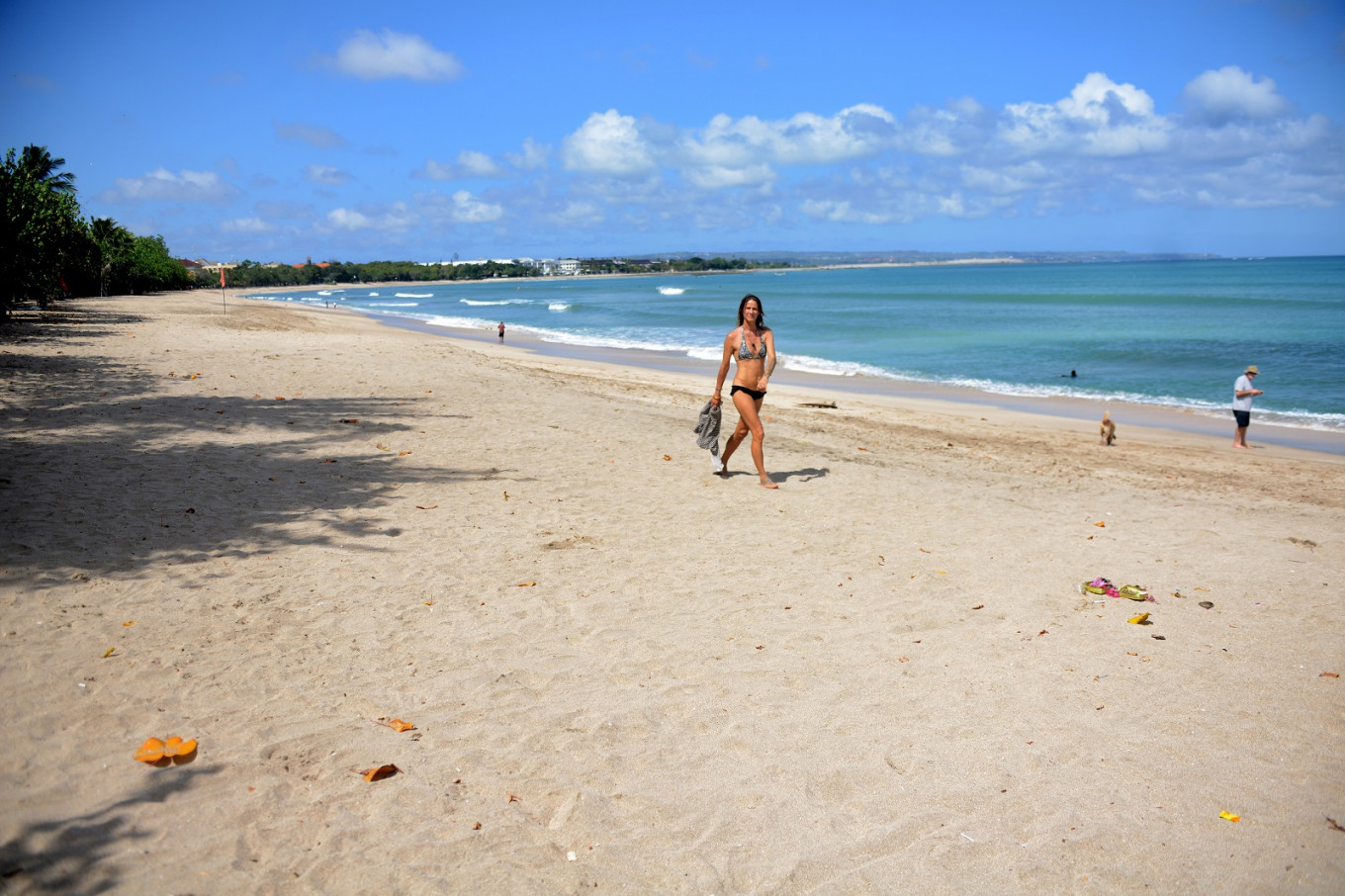Popular Reads
Top Results
Can't find what you're looking for?
View all search resultsPopular Reads
Top Results
Can't find what you're looking for?
View all search resultsHotel occupancy rate drops slightly in September after rally
Statistics Indonesia (BPS) data show that the country’s average hotel occupancy rate from August to September went down 0.8 percentage points to 32.12 percent, a drop of 21.4 percentage points from the same period last year.
Change text size
Gift Premium Articles
to Anyone
I
ndonesia saw the average hotel occupancy rate drop slightly in September from the previous month, the first decline since April, as the COVID-19 pandemic continues to hurt demand for leisure travel.
Statistics Indonesia (BPS) data show that the country’s average hotel occupancy rate from August to September went down 0.8 percentage points to 32.12 percent, a drop of 21.4 percentage points from the same period last year.
BPS chairman Suhariyanto said on Monday that the September figure was due to the absence of a long-weekend and the lack of a public holiday throughout the month, unlike in August when there was Independence Day and the Islamic New Year.
“We recorded a lower monthly result because there are fewer holidays [in September] compared to August. We also had long weekends in August such as the Independence Day commemoration,” he said during an online press conference.
Prior to September, Indonesia’s hotel occupancy rate had seen a steady increase since April, when it recorded the year’s lowest occupancy rate of 12.67 percent, a month after the initial COVID-19 outbreak. It then improved to 32.93 percent in August this year, the highest level since February, before the decline in September.
The COVID-19 health emergency has devastated the tourist industry, with large-scale social restrictions (PSBB) imposed in several regions, as well as border closures to prevent imported virus infections. The measures have cut an estimated Rp 85 trillion (US$5.8 billion) from Indonesia’s tourist revenue as of July, with losses of around Rp 70 trillion recorded by the hotel and restaurant sector, according to data provided by the Indonesian Hotel and Restaurant Association (PHRI).
Read also: Tourism ministry to start disbursing relief grant to 101 cities, regencies next month
PHRI secretary-general Maulana Yusran told The Jakarta Post that the reimposition of the PSBB in Jakarta in September also caused families to cancel their holiday plans and resulted in negative sentiments over the tourism industry nationwide.
The Jakarta administration reinstated strict PSBB measures for the second time between Sept. 14 and Oct. 11, after initially being enforced from April to June, due to the fear of hospitals reaching their capacity amid the rising number of COVID-19 patients.
Furthermore, public fear of COVID-19 transmission and declining purchasing power also caused the occupancy rate to decline in September, which could put the tourist industry under pressure for months to come, according to Maulana.
“Our main challenge ahead is the declining consumer’s purchasing power. We’ve started to see the effect of our contracting economy during the long weekend in October, where only a small portion of regions saw their hotel occupancy increase,” he said, referring to the recent five-day weekend from Oct. 28 to Nov. 1.
Household spending fell 5.51 percent year-on-year in the second quarter as Indonesia’s gross domestic product contracted 5.32 percent, according to BPS data.
Hotels situated in tourist hubs such as Bali and Riau Islands were especially taking a hit, as the foreign and domestic leisure travel segment was recovering slower than the business travel segment, Maulana said.
“The key to jumpstarting the tourist industry lies with the business travel segment, which the government can directly support by holding meetings and events at hotels,” he said.
Compared to other regions, the resort island of Bali recorded the worst hotel occupancy rate in September at 5.28 percent, compared to Jakarta’s 38.96 percent during the same period.
The BPS also recorded a 5.94 percent month-on-month decline in foreign tourist visits in September to 153,500 people. Between January and September this year, the number of foreign visits dipped 70.57 percent to 3.56 million visitors from the same period last year.
The government established a business travel corridor with neighboring Singapore on Oct. 26, after having previously done the same with United Arab Emirates and South Korea.
While the travel corridor could cause a ripple effect for hotel businesses, a tourism expert from Gadjah Mada University (UGM), M. Baiquni, told the Post that the policy would only benefit hotels located in business centers and regions with a strong presence of foreign investment.
“I think business travelers would solely come to do business in Indonesia and they will fly back to their respective countries once they’re done. Therefore, we won’t see an increase [of visits] in resort regions,” he said.










